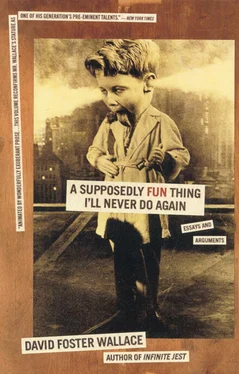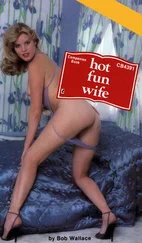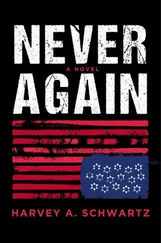13 what several different members of the crew and production staff, some of whom have been to film school, have to say about Lost Highway
“David’s idea is to do this like dystopic vision of LA. You could do a dystopic vision of New York, but who’d care? New York’s been done before.”
“It’s about deformity. Remember Eraserhead? This guy’s going to be the ultimate Penishead.”
“This is a movie that explores psychosis subjectively.”
“I’m sure not going to go see it, I know that.”
“It’s a reflection on society as he sees it.”
“This is a sort of a middle ground between an art film and a major studio release. This is a hard niche to work in. It’s an economically fragile niche, you could say.”
“This is his territory. This is taking us deeper into a space he’s already carved out in previous work already — subjectivity and psychosis.”
“He’s doing a Diane Arbus number on LA, showing the slimy undersection of a dream-city. Chinatown did it, but it did it in a historical way, as a type of noir-history . David’s film’s about madness ; it’s subjective , not historical ”
“It’s like, if you’re a doctor or a nurse, are you going to go buy tickets to go see an operation for fun in your spare time, when you’re done working?”
“This film represents schizophrenia performatively , not just representationally . This is done in terms of loosening of identity, ontology , and continuity in time .”
“Let me just say I have utmost respect — for David, for the industry, for what David means to this industry. Let me say for the record I’m excited. That I’m thrilled and have the utmost respect.”
“It’s a specialty film. Like The Piano , say. I mean it’s not going to open in a thousand theaters.”
“‘Utmost’ is one word. There is no hyphen in ‘utmost.’ ”
“It’s about LA as hell. This is not unrealistic, if you want my opinion.”
“It’s a product like any other in a business like any other.”
“It’s a Negative Pick-Up. Fine Line, New Line, Miramax — they’re all interested.”
“David is the Id of the Now. If you quote me, say I quipped it. Say ‘“David is the Id of the Now,” quipped______, who is the film’s ______.’”
“David, as an artist, makes his own choices about what he wants. He makes a film when he feels he has something to say. The people who are interested in his films… some [of his films] are better than others. Some are perceived as better than others. David does not look at this as his area of concern.”
“He’s a genius. You have to understand this. In these areas he’s not like you and me.”
“The head-changings are being done with makeup and lights. No CGIs.” 29
“Read City of Quartz . That’s what this film’s about right there in a nutshell.”
“Some of [the producers] were talking about Hegel, whatever the hell that has to do with it.”
“Let me just say I hope you’re not planning to compromise him or us or the film in any way.”
trivia tidbit
Laura Dern’s soft blond hairstyle as Sandy in Blue Velvet is identical to Charlotte Stewart’s soft blond hairstyle as Mary in Eraserhead .
14 a section that’s a mix of extrapolations from other sections and is impossible to come up with a unified heading for
The word postmodern is admittedly overused, but the incongruity between the peaceful health of his mien and the creepy ambition of his films is something about David Lynch that is resoundingly postmodern. Other postmodern things about him are his speaking voice — which can be described only as sounding like Jimmy Stewart on acid — and the fact that it’s literally impossible to know how seriously to take what he says. This is a genius auteur whose vocabulary in person consists of things like “Okey-doke” and “Marvy” and “Terrif” and “Gee.” After the last car-filming run and then the return to Base Camp, as people are dismantling cameras and bounces and the unbelievably alluring Chesney is putting the afternoon’s unused film under a reflective NASA blanket, Lynch three times in five minutes says “Golly!” Not one of these times does he utter “Golly!” with any evident irony or disingenuity or even the flattened affect of somebody who’s parodying himself. (Let’s also remember that this is a man with every button on his shirt buttoned and highwater pants: it’s like the only thing missing is a pocket protector.) During this same tri-”Golly!” interval, though, about fifty yards down the little hypotenal road the catering trailer’s on Mr. Bill Pullman, who’s sitting in a big canvas director’s chair getting interviewed for his E.P.K., 30is leaning forward earnestly and saying of David Lynch both: “He’s so truthful — that’s what you build your trust on as an actor, with a director” and: “He’s got this kind of modality to him, the way he speaks, that lets him be very open and honest and at the same time very sly. There’s an irony about the way he speaks.”
Whether Lost Highway is a. smash hit or not, its atmosphere of tranced menace is going to be really good for Bill Pullman’s career. From movies like Sleepless in Seattle and While You Were Sleeping and (ulp) Casper , I formed this view of Pullman the actor as a kind of good and decent but basically ineffectual guy, an edgeless guy; I always thought of him as kind of a watered-down version of the already pretty watery Jeff Daniels. 31 Lost Highway —for which Pullman has either lost weight or done Nautilus or both (he has, at any rate, somehow grown a set of cheekbones), and in which he’s creepy and tormented and plays jagged, haunting jazz saxophone under a supersatured red-and-blue spot, and in which his face contorts in agony over the mutilated corpse of Patricia Arquette and then changes more than once into somebody else’s face — is going to reveal edges and depths in Pullman that I believe will make him a true Star. For the E.P.K. he’s in a tight all-black jazz musician’s costume, and his makeup, already applied for a night scene in a couple hours, gives his face a creepily Reaganesque ruddiness, and while various kinds of crepuscular bugs plague the E.P.K. interviewer and cameraman and sound guy these bugs don’t seem to come anywhere near Pullman, as if he’s already got the aura of genuine stardom around him, the kind you can’t quite define but that even insects can sense — it’s like he’s not even quite there , in his tall chair, or else simultaneously there and somewhere primally else.
Ms. Patricia Arquette has been bad in everything since True Romance without this fact seeming to have hurt her career any. It’s hard to predict how audiences will react to her in Lost Highway . This is a totally new role(s) for her, as far as I can see. Her most credible performances to date have been as ingenues, plucky characters somehow in over their head, whereas in Lost Highway she herself is a part of the over-the-head stuff Bill Pullman and Balthazar Getty get plunged into. Lost Highway ’s female lead is the kind of languid smoky narrow-eyed Incredibly-Sexy-But-Dangerous- Woman-With-Mindblowing- Secrets noir-type role that in recent years only Body Heats Kathleen Turner and Miller’s Crossings Marcia Gay Harden have pulled off without falling into parody or camp. From the footage I saw, Arquette is OK but not great in Lost Highway . She vamps a lot, which is apparently the closest she can come to Sexy But Dangerous. The big problem is that her eyes are too opaque and her face too set and rigid to allow her to communicate effectively without dialogue, and so a lot of the long smoky silences Lynch requires of her come off stiff and uncomfortable, as if Arquette’s forgotten her lines and is worrying about it. Even so, the truth is that Patricia Arquette is so out-landishly pretty in the film’s rough-cut footage that at the time I didn’t notice a whole lot aside from how she looked, which, seeing as how her Duessa-like character basically functions as an object in the film, seems OK, though I’m still a little uncomfortable saying it. 32
Читать дальше












